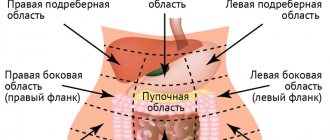Bleeding after taking Postinor is the key to the successful effects of the drug, according to the official instructions. The medicine belongs to the means of post-coital contraception; it is the most famous and long-proven remedy in the CIS. To prevent the onset of unwanted conception, you need to take the pill for three days after sexual intercourse. In the future, after the allotted period, taking the drug does not matter. The active contraceptive substance is gestagen - levonorgestrel. Synthetic gestagens and their structurally similar hormones affect changes in the endometrial mucosa, which makes implantation impossible. The embryo cannot attach to the wall of the uterus, as a result of which it dies. Synthetic gestagen transfers the endometrium from the secretory phase to the proliferative phase, which ensures the rapid arrival of menstrual-like blood discharge, which lasts approximately the same duration as normal menstruation, although there are individual differences, because each body reacts to the substance in its own way. In any case, a hormonal imbalance occurs, after which the woman’s sexual functions are restored over time. Many girls are concerned about the following questions: how many days does bleeding begin after taking postinor, and also what should normal bleeding be like after postinor, what is normal, and when should you see a doctor?
Should there be bleeding after Postinor?
Can postinor cause bleeding? Yes, levonorgestrel causes effects in the female body similar to the end of the monthly cycle. After using it, the endometrial layer is rejected, which means that menstruation will begin soon. According to the manufacturer, blood clots will begin to appear 3-6 days after consumption. In this case, if everything went well, a small amount of brown discharge appears after postinor during this time period, which indicates that artificial menstruation has occurred. If there is no bleeding, then you should wait a little longer, they can start in 7-8 days, deviation from the instructions for a couple of days is not at all critical. If, after using the drug, bleeding does not begin within all the specified periods, then this is a serious reason to consult a doctor to check the condition of the body with an ultrasound.
Definition
Postinor belongs to the group of emergency contraception. It is effective from any day of the cycle, while other oral contraceptives require protection with a condom at the beginning of use.
The active ingredient in Postinor is levonorgestrel, which is a derivative of progesterone. Its concentration in the drug is quite high, which is why the contraceptive is not taken often.
Thanks to Postinor you can achieve the following effects:
- the egg matures much slower than usual;
- the endometrium becomes very thin, so implantation of the fertilized egg is almost impossible;
- sperm cannot reach their destination, that is, the uterus, since the mucous secretion becomes very thick.
Discharge after Postinor is quite understandable, since it is a blow to the hormonal system. The drug was created to prevent unwanted pregnancy at any cost.
This is very important if a woman is completely unprepared to have a child for any reason. Postinor must be taken within 72 hours after unprotected sexual intercourse. The drug will act on the egg in any case - at the stage of maturation and after its release.
The main thing is that you should not take it when conception has already occurred and the fetus has attached to the uterus. At best, the drug is simply useless. But at the same time, it can also have a negative impact on a woman’s health. Young girls under 16 years of age are strictly prohibited from using the drug without the knowledge of a doctor.
Why is there no bleeding after postinor?
All possible reasons for the absence of menstruation should be considered:
- Untimely use of the drug, after three days, when the attachment of the embryo has already occurred
- Severe hormonal imbalance
- Use of the drug in conjunction with other hormonal agents
- The medicine didn't work.
Unfortunately, if more than a week has passed and you still haven’t had your period, then most likely the medication did not work, and you need to see a doctor as soon as possible. After visiting a gynecologist, you must donate blood to determine the level of human chorionic gonadotropin in the body. A high level of the hormone and the presence of an attached embryo in the uterus, which is visible on ultrasound, are a clear sign that levonorgestrel has not worked. This happens due to untimely use of the medicine or due to its invalidity, because not a single manufacturer gives a 100% guarantee of the results of their product. If pregnancy does occur, it is recommended to have a medical abortion or you can leave the child, since levonorgestrel has no significant effect on the body of the developing fetus.
By the way, an interesting fact. If brown discharge begins after taking Postinor, this also does not guarantee that the woman has not become pregnant, since acyclic vaginal discharge does not guarantee the absence of pregnancy. If gestation has already occurred after using the drug, then spotting or long-term continuous discharge with blood impurities may occur. How long does bleeding last normally? Usually this takes within 3-10 days, but in some cases, menstruation can last up to two weeks inclusive, since a hormonal imbalance occurs, and each body reacts to it in its own way.
Postinor and pregnancy
It is prohibited to use Postinor during pregnancy or even if you suspect it. In cases where pregnancy still occurs after taking the drug, you should definitely visit a gynecologist and consult with him regarding further actions. But it must be taken into account that numerous studies have not revealed any teratogenic (affecting embryonic development) effect on the fetus.
If, a week after using Postinor, a woman still has tightness in her lower abdomen and pain occurs (along with this, she may experience a little “smearing” in the middle of the cycle), then she should immediately consult a specialist to rule out an ectopic pregnancy.
It must be taken into account that with this type of fetal development, the result of a special test will be negative, so it is not possible to identify the pathology on your own. This situation is considered especially dangerous, since in case of ectopic conception, the only treatment option is to terminate the pregnancy at an early stage. Otherwise, the woman’s life will be in danger.
The drug can be used during lactation, but after taking it you need to interrupt feeding for 24 hours.
Before taking drugs such as Postinor, you need to know both its side effects and the state of your health, which can react very inadequately. The main component of this remedy is an increased dose of levonorgesterol (hormone), which is why it should only be used in extreme cases. Efficacy is guaranteed if the drug is taken within the first 24 hours after sexual intercourse. It can not only save you from an unplanned pregnancy, but also provoke bleeding.
Bleeding after Postinor is a fairly common phenomenon and requires medical intervention. It has some features:
- The appearance of moderate bleeding is observed one week after the drug was used. At first it is an insignificant discharge with minor blood components, then the condition resembles menstruation, but the bleeding is more profuse. This process is caused by a shock dose of the hormone, which upsets the existing balance.
- The quantitative indicators of blood released during this process depend on various factors:
- woman's age;
- body mass;
- growth parameters.
In fact, some may only have spotting, while others may experience bleeding similar to their monthly cycle. It is difficult to say unambiguously how long this process lasts. Typically, for nulliparous women this event takes about 3 days, and for women who have children – approximately 5-7 days.
- Individual intensity of discharge after administration. If bleeding begins intensively, then by the 6th day it should be less. In the case when the intensity does not decrease, we can say that something went wrong, which means that the intervention of a gynecologist cannot be avoided.
- Force majeure situations. Unfortunately, you cannot insure against them, and all of them require mandatory consultation with a doctor. These are:
- due to severe bleeding, personal hygiene products (pads) are replaced almost every hour;
- the process of blood loss lasts more than 12 hours;
- at night the intensity does not decrease;
- the appearance of dizziness, weakness, shortness of breath, even loss of consciousness.
- Fertilization - such cases are possible, since no drug gives a 100% guaranteed result. The condition is accompanied by scanty or slight bleeding, which indicates embryo implantation. Sometimes an ectopic pregnancy occurs.
How to stop bleeding if it lasts
Spotting menstruation is one thing, because the blood loss in this case is insignificant, but when scarlet blood constantly flows, and the pad has to be changed every 3-4 hours, and there is no hint of stopping, then this indicates metrorrhagia, which needs to be stopped. In any case, you should make an appointment with a gynecologist so that he can prescribe medications to restore hormonal levels (as a rule, oral contraceptives are prescribed), but until the woman gets an appointment, you can try to stop the bleeding at home with the help of hemostatics.
What tools can be used:
- Aminocaproic acid
- Dicynone (etamsylate)
- Tranexam.
What substances should you not resort to:
- Vikasol
- Askorutin
- Water pepper tincture
- Nettle leaf extract.
Aminocaproic acid, like tranexam, can quickly eliminate metrorrhagia, since both directly affect the blood clotting process. These substances are contraindicated for persons with thrombosis or a tendency to form blood clots.
Dicynone (etamsylate) is the safest hemostatic agent on the pharmacological market and least likely to cause side effects. The product stops bleeding in the capillaries, quickly healing them. Etamsylate does not significantly affect blood clotting parameters, and at the same time, it helps very quickly. After taking the tablets, the effect develops after a few hours, and after injections after 10-15 minutes.
Vikasol is a synthetic water-soluble analogue of fat-soluble vitamin K. In our body, vitamin K is synthesized in sufficient quantities under conditions of normal healthy microflora. Disturbance of intestinal microflora usually occurs due to the abuse of antibiotics. If a woman does not suffer from dysbacteriosis, then a deficiency of vitamin K is unlikely to be detected in her body. If she takes Vicasol, the effect will occur no earlier than in 8-24 hours, and if there is no vitamin deficiency, then the result from using the drug may not be at all occur, but it is quite possible to develop the risk of hypercoagulation or a blood clot.
Ascorutin is a harmless vitamin preparation based on the bioflavonoid rutin and ascorbic acid. It has no side effects, replenishes vitamin C deficiency, strengthens vascular walls, but this is where its positive effects end. Taking ascorutin, even in very large quantities, will not stop metrorrhagia, although it will not do much harm. In serious situations, use is useless.
Tincture of water pepper and nettle leaf extract - herbal hemostatic preparations are good for minor disorders; if the pathological condition becomes serious, then herbs alone cannot be used.
What can a doctor prescribe to normalize the cycle? It is possible to take oral contraceptives, which put the ovaries into a dormant state. Depending on the individual characteristics of a particular patient, fourth-generation antiandrogenic oral contraceptives based on drospirenone, cyproterone or chlormadione acetate (Yarina, Jess, Chloe, Qlaira), third-generation COCs without androgenic side effects based on gestodene, desogestrel, dienogest (Lindinet, Femoden) may be prescribed , Regulon, Novinet, Janine) or second-generation OCs based on the same levonorgestrel (tri-regol, rigevidon, microgynon, triquilar).
Treatment and prevention
If, as a result of taking the hormonal drug Postinor, a woman begins to experience severe bleeding, she should consult a doctor to stop it. In this situation, a specialist may prescribe Dicynon or Etamzilat tablets.
If a woman suffers from the fact that her menstrual cycle is disrupted, her periods are scanty and do not recover on their own, the doctor prescribes hormonal therapy. In this case, the treatment regimen is selected based on individual data.
Most often, such discharge does not require hospitalization; therapy is carried out at home, taking into account all the recommendations of the gynecologist.
To eliminate the need to take emergency contraception, it is recommended to pay attention to other means that block the process of conception. These include oral contraceptives, condoms, and intrauterine device carefully selected by a physician. Their use is accompanied by a lower risk of side effects and complications.
«>
What should be the normal discharge?
Normally, after taking a loading dose of levonorgestrel, the discharge is brown, there is little of it, the intensity is moderate, and it is thick. The dark brown color is due to a mixture of mucus and a small amount of blood. The onset of discharge is accompanied by a moderate malaise of the whole body; weakness is often observed, similar to the onset of real menstruation. Dark clots with scarlet impurities often indicate that levonorgestrel was taken in the second phase of the cycle, and regular periods began. Synthetic gestagens can shift the physiological cycle, affecting the date of menstruation.
A small amount of menstrual-like bleeding is normal. After a week, it is recommended to test the levels of human chorionic gonadotropin to make sure that conception has not occurred. Before taking the pills, it is also recommended to take a pregnancy test first to ensure that the woman is not already pregnant. In some cases, the postcoital type of contraception causes complications in the course of an existing pregnancy. There is a risk of miscarriage, metrorrhagia, placental abruption. If a woman is worried about something after using fire contraceptives, it is recommended to consult a doctor.
How does Postinor work?
The action of Postinor is divided into the following main stages.
- The egg is blocked as it leaves the ovary. These are the main consequences of taking the drug in the first phase of the cycle. There is a significant decrease in the function of estrogen, which affects the maturation of the egg. In this case, endometrial growth slows down.
- In the middle of the cycle, the synthesis of a hormone that affects the release of the egg from the ovary is inhibited. The consequence of Postinor's action will be the absence of ovulation.
- The drug also acts on the body in the second phase, reducing the synthesis of progesterone and creating negative conditions for the process of fixation of the embryo on the uterine wall.
- The action of levonorgestrel ensures the appearance of viscosity on the mucus of the cervix, resulting in the impossibility of sperm penetration. The effect of Postinor reduces the likelihood of conception. To achieve this effect, you should take the drug immediately after sexual intercourse.
Side effects and contraindications for use
Taking the medication is contraindicated under the age of 16, as well as in case of individual intolerance to the active substance in the composition.
The most common side effects that occur are vomiting or nausea after use. Other less common side effects are dizziness, migraine, severe headache, diarrhea, nagging or sharp pain in the lower abdomen, metrorrhagia, decreased performance, increased fatigue, hormonal imbalance.
The least common side effects may be on the skin: acne, urticaria, various allergic reactions, dysmenorrhea, itching, pelvic pain, facial swelling, metabolic disorders. Metabolic disorders are often reflected in fluctuations in body weight. To minimize the harm from such medications, they should not be used more often than once every 3-4 months.









